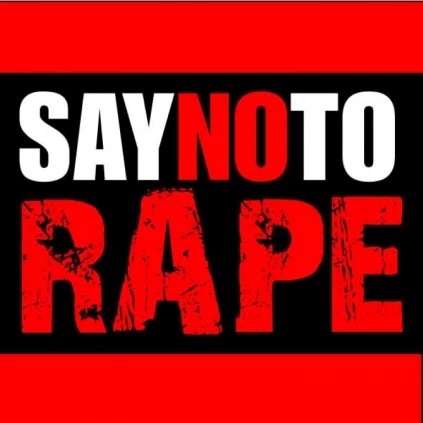

Rape is assuming a worrisome dimension with increased reporting in recent times in Nigeria and all other parts of the world.
Apart from an undergraduate in Edo State, Vera Omozuwa, and a resident in Oyo State, Barakat Bello, who were murdered by their assailants, more cases have come to limelight.
For instance, a twelve-year-old girl was recently raped by four masked men in her home in Ajah, Lagos and another twenty-seven-year-old man was also apprehended for allegedly defiling a three-month-old baby and four other children in Adogi village, Nassarawa State.
In May this year, a forty-three-year-old man was arrested for defiling his fifteen-year-old daughter at Lugbe area, Abuja and another suspect was arrested for luring and forcefully having carnal knowledge of a six-year-old boy.
The list is endless.
Rape, put in the words of gender activists all over the world, is like stabbing the heart and leaving the knife there.
Rape leaves an indelible scar long after tissue healing has occurred as it results in physical, psychological and social damage for the survivor.
Survivors often feel they are marked for life, disenchanted and most times feel burdened by normal every day activity
Some develop suicidal tendencies due to anxiety, some depression while others contract sexually transmitted diseases and sometimes damage reproductive organs as a result of the act.
There have been unreported instances where women have attempted to murder children born from rape.
Furthermore, in the northeastern part of the country, women and girls rescued from Boko Haram have shown intense hatred for children resulting from their forceful unions with the terrorists.
To reduce incidences of rape, therefore, the nation’s justice system should be strengthened
A 2017 statistics from the United States of America revealed that of every one hundred cases of rape, forty-six will not be reported to the police, twelve will not lead to arrest, nine will get prosecuted and five will be temporarily arrested, only three will spend time in prison while the other ninety-seven will walk free with no punishment for them.
The scenario in Nigeria could rather be imagined.
Therefore, the child rights act which provides that sex with a child is rape and anyone who has sexual intercourse with a child is liable to imprisonment for life upon conviction should be strictly enforced to serve as a deterrent to others.
Commendably, the Nigerian Governors’ Forum has strongly condemned all forms of violence against women and children and pledges commitment to ensure that offenders face the maximum weight of the law.
Furthermore, the ministry of women and social welfare should up its game by liaising with relevant authorities to find lasting solutions to rape issues.
The boy child from a tender age must be taught respect and dignity for women while musical videos and films depicting women as mere sex symbols should be reviewed.
It is essential to recognise the need to provide emotional therapies for survivors in the nation’s hospitals.
Rape is never the fault of survivors, they live with the shame and guilt and often find it difficult to forgive themselves.
Knowing this, therefore, family support and favourable environment is needful to promote the healing process which is often slow, while linkage with a support group is essential to encourage experience sharing and eventual recovery..
Anthonia Akanji